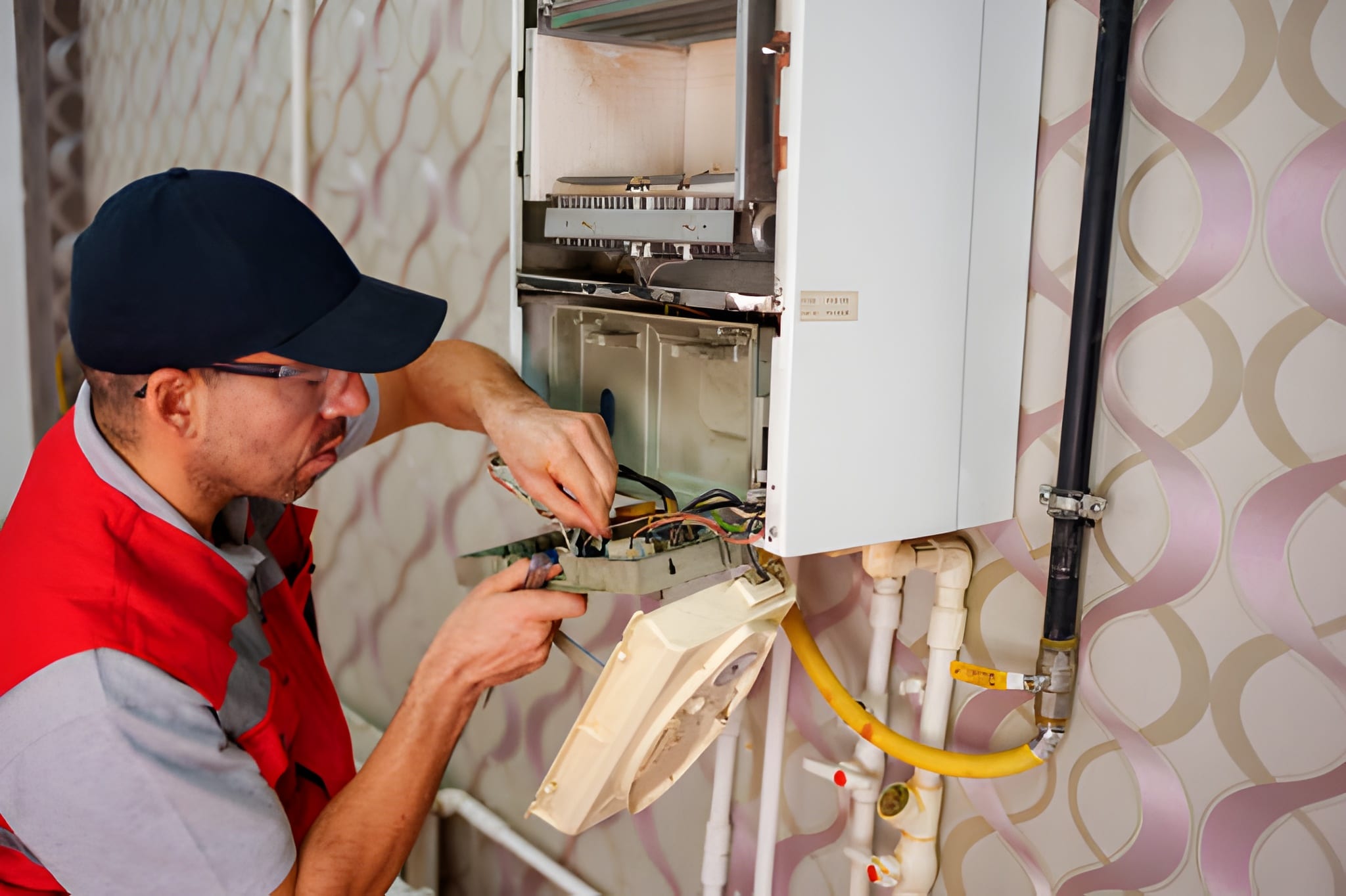Heating Maintenance in Aubrey, TX
Keeping your heating system well maintained is essential for reliable comfort and lower energy bills in Aubrey, TX. Whether your home uses a gas furnace, heat pump, or hybrid system, routine and seasonal maintenance prevents cold-night breakdowns during North Texas cold snaps, improves indoor air quality during high-pollen seasons, and extends equipment life.

Common heating systems in Aubrey, TX and why maintenance matters
- Gas furnaces: Many Aubrey homes use natural-gas furnaces that need annual inspection for safe combustion and to protect against heat exchanger cracks and carbon monoxide risk.
- Heat pumps: Widely used for year-round comfort; they should be checked before both heating and cooling seasons because they operate almost year-round in North Texas.
- Hybrid systems: Combined heat pump and furnace setups require coordinated maintenance to ensure smooth switchover and efficient operation.
Local factors that affect heating maintenance needs:
- Occasional subfreezing temperatures during winter increase system runtime and stress.
- Spring and fall pollen and dust from rural areas can clog filters and reduce airflow.
- Power interruptions during storms can cause repeated cycling or component stress.
What a comprehensive heating maintenance program includes
A professional program focuses on safety, reliability, and efficiency through a predictable checklist and seasonal scheduling.
- Tune-Up and performance test
- Clean burners, heat exchanger inspection, test ignition and flame sensors.
- Verify system starts, cycles, and reaches target temperatures efficiently.
- Filter and airflow inspection
- Check and advise on filter type and replacement frequency.
- Measure airflow and inspect blower wheel and motor for dust buildup.
- Safety checks
- Carbon monoxide risk assessment and combustion analysis for gas systems.
- Inspect venting, gas connections, and heat exchanger integrity.
- Electrical and component inspection
- Tighten electrical connections, test capacitors and relays, check thermostat wiring.
- Examine belts, pulleys, and lubrication points on older systems.
- Efficiency optimization
- Calibrate thermostats, check blower speed and fan controls, confirm proper gas pressure or refrigerant charge for heat pumps.
- Recommend duct sealing or insulation where losses are detected.
- Duct and condensate evaluation
- Inspect visible ductwork for leaks, disconnected seams, and insulation gaps.
- Clear and test condensate drain and trap for proper drainage.
- Record keeping and recommendations
- Provide a maintenance report with observed issues, part life estimates, and scheduling suggestions.
Typical diagnostic process technicians follow
- Review prior maintenance records and homeowner notes (comfort complaints, unusual noises).
- Inspect filters, vents, and visible ductwork for immediate airflow problems.
- Conduct safety and combustion tests for gas systems, including carbon monoxide reading and venting checks.
- Test electrical components and controls under load, and measure performance metrics (temperature rise, static pressure).
- Run system through several cycles to observe behavior under real conditions.
- Deliver a clear service summary noting immediate repairs vs recommended upgrades.
Common heating issues found in Aubrey, TX homes and how they’re resolved
- Restricted airflow from clogged filters or blocked vents
Solution: Replace filters and clear vents; inspect and clean blower components. - Failing ignition or pilot systems
Solution: Clean or replace ignition components and verify proper gas flow and safety switches. - Dirty burners or inefficient combustion
Solution: Clean burners, adjust gas pressure and perform combustion analysis to restore efficiency.' - Worn blower motors, belts, or bearings
Solution: Lubricate moving parts, replace belts, or replace motors when wear is severe. - Refrigerant issues in heat pumps
Solution: Leak diagnosis and repair, refrigerant recharge, and component checks for compressors and reversing valves. - Duct leakage or poor insulation
Solution: Seal accessible ducts, add insulation, and recommend professional duct repairs for persistent losses. - Cracked heat exchanger or corrosion
Solution: Immediate safety assessment; in many cases, heat exchanger replacement is recommended to eliminate CO risk.
Maintenance agreements and scheduling — what to expect
Maintenance agreements provide predictable care and peace of mind without surprises. Typical features include:
- Seasonal reminders and priority scheduling for pre-winter and pre-summer Tune-Ups.
- Detailed service records to support warranty requirements and resale documentation.
- Planned maintenance intervals aligned with system type (furnace vs heat pump) and household needs.
- Preferential terms for diagnostic visits and emergency response times, and straightforward explanations of recommended repairs and parts life expectancy.
Recommended maintenance frequency for Aubrey homeowners
- Filter checks: Inspect monthly; replace every 1–3 months depending on filter type, household pets, and pollen/dust levels.
- Gas furnace: Professional inspection and Tune-Up annually, preferably in fall before cold weather.
- Heat pump: Professional service twice a year—once before cooling season and once before the heating season.
- Older systems (10+ years): Consider biannual professional checks and earlier replacement planning as efficiency and reliability decline.
- Duct cleaning/inspection: Every 3–5 years or sooner if you see dust buildup, musty odors, or pest evidence.
- Carbon monoxide detectors: Test monthly and replace batteries per manufacturer recommendations, especially after maintenance of combustion appliances.
Benefits of regular heating maintenance for Aubrey, TX homes
- Reduced breakdowns: Regular checks find small problems before they turn into weekend or overnight failures during cold snaps.
- Longer equipment life: Clean, properly adjusted systems last longer and delay expensive replacements.
- Lower energy bills: Optimized combustion, correct refrigerant charge, and good airflow reduce wasted energy.
- Improved safety: Combustion testing and heat exchanger inspections reduce carbon monoxide and fire risks.
- Better indoor air quality and comfort: Clean filters and balanced airflow reduce allergens and deliver more even heat.
- Warranty and resale value protection: Properly documented maintenance helps preserve manufacturer warranties and shows upkeep to potential buyers.
Regular heating maintenance is a practical investment for Aubrey homeowners who want dependable warmth during winter cold spells, improved indoor air quality during pollen season, and lower operating costs year-round. By following recommended service intervals and addressing small issues early, homeowners protect their comfort, safety, and long-term equipment value.

Flexible Financing Options
Explore our range of flexible financing options designed to suit your needs and budget.













